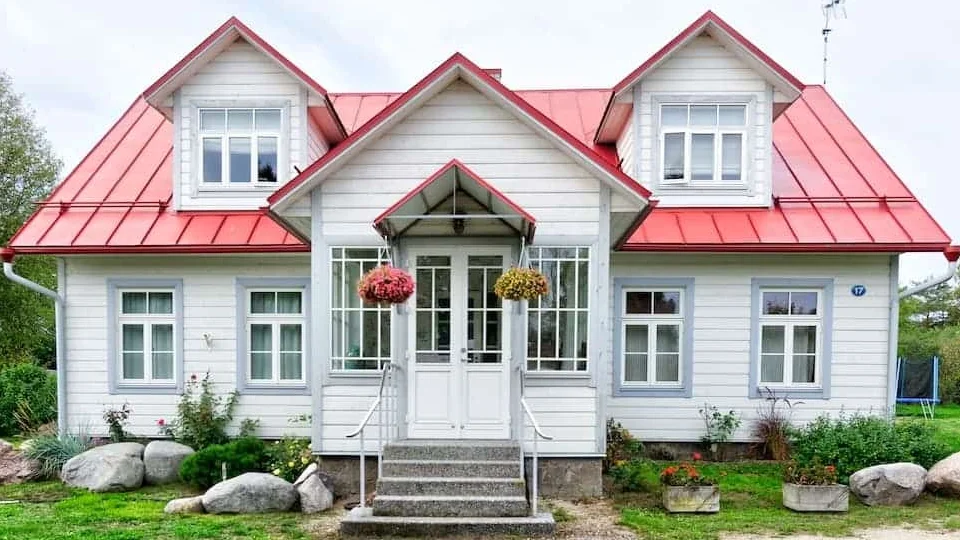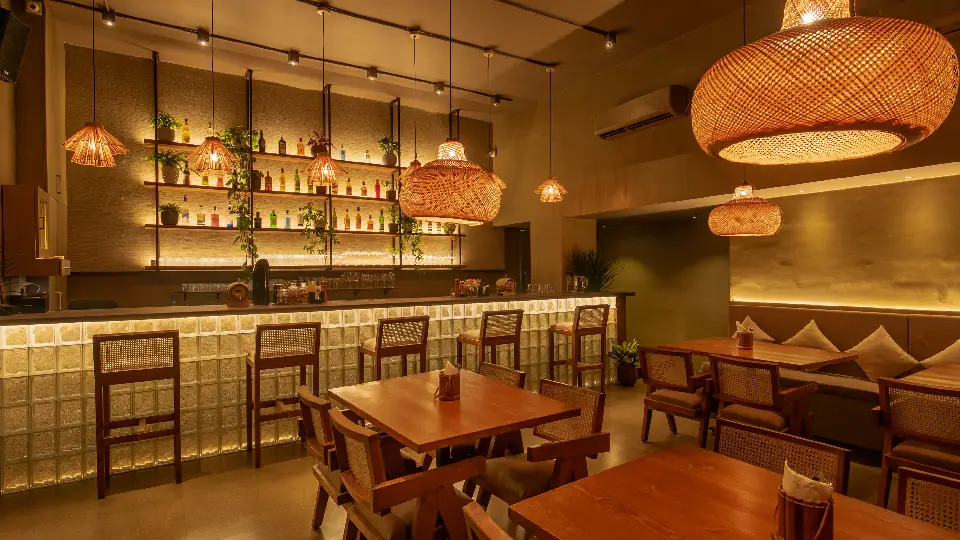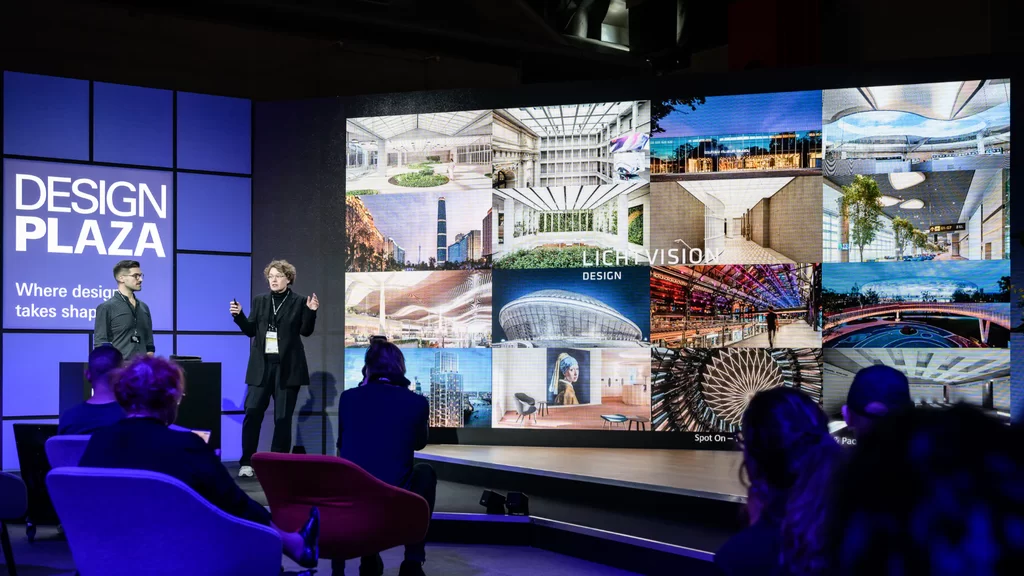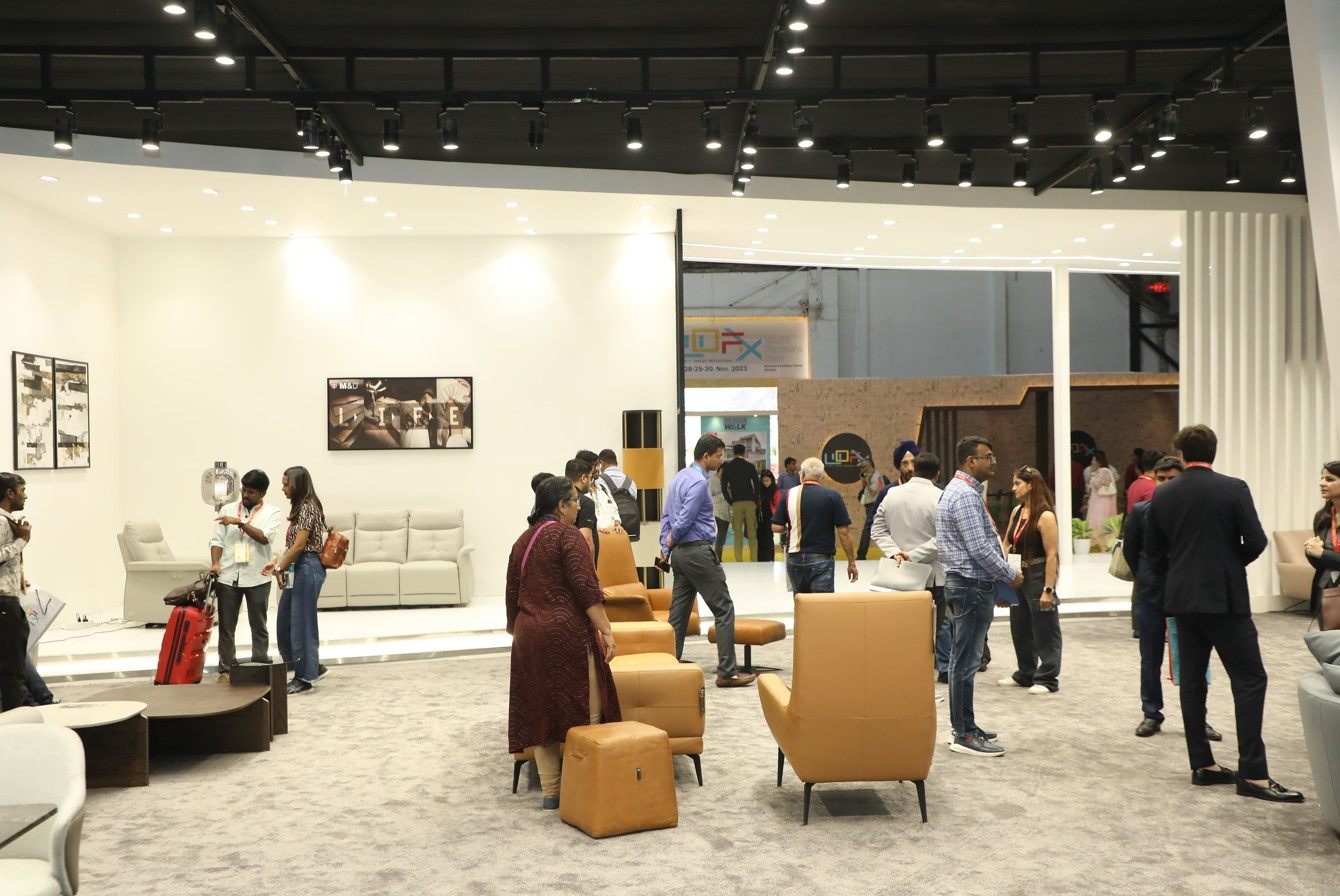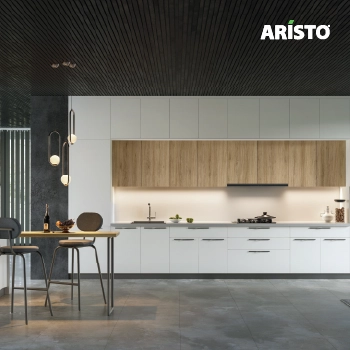A compound wall refers to a structure that is built to divide an area into two distinct plots. Nowadays, exclusive compound wall designs with unique accessories have become the latest fad. They provide a layer of security and privacy to a home. These wall designs also reflect the tastes of the homeowner. In this article, we will discuss the different types of designs for the compound wall like simple masonry walls, modern cladding walls, etc. When planning a compound wall design for home, consider how it interacts with the landscape to create a harmonious outdoor environment. We have also listed the different materials used to make compound walls and some unique tips to make your house stand out. Keep reading to get inspired by stunning pictures of the compound wall design. When searching for inspiration, compound wall design photos can help visualize various styles, materials, and finishes for your project.
A modern compound wall design for building enhances both security and aesthetics, blending functionality with style. From sleek concrete finishes to artistic metal grills, building compound wall designs offer versatile options to suit every architectural need. To up the style quotient of your home, you can also design a vertical garden wall or a peek-a-boo wall and add accent lights and decorative niches to make your home a talking point.
Whether you’re moving into a new home or are looking to redo your existing walls, we have got you covered. So, read along!
Contents
- 1 Types of compound wall designs
- 2 Materials used for compound wall construction
- 3 Home compound wall designs
- 3.1 Compound wall design #12 – Japanese garden wall
- 3.2 Compound wall design #13 – Peek-a-boo wall
- 3.3 Boundary design #14 – Stucco concrete wall
- 3.4 Boundary design #15 – Gabion wall
- 3.5 Boundary design #16 – Green wall
- 3.6 Compound wall design #17 – Metal fence wall
- 3.7 Compound wall design #18 – Exposed brick wall
- 3.8 Compound wall design #19 – Stone clad wall
- 3.9 Compound wall designs #20 – Ornate jaali wall
- 3.10 Compound wall design #21 – Heritage-inspired wall
- 3.11 Compound wall design #22 – Sustainable fence wall
- 4 Home compound wall design tips
- 5 FAQs
- 6 25 simple Indian house colour combination for outside walls
Types of compound wall designs
For a long time, simple masonry compound walls have been a trusted choice with their solid foundation. However, in recent years precast walls have gained popularity. The different types based on their appearance are:
Compound wall design #1 – Masonry wall
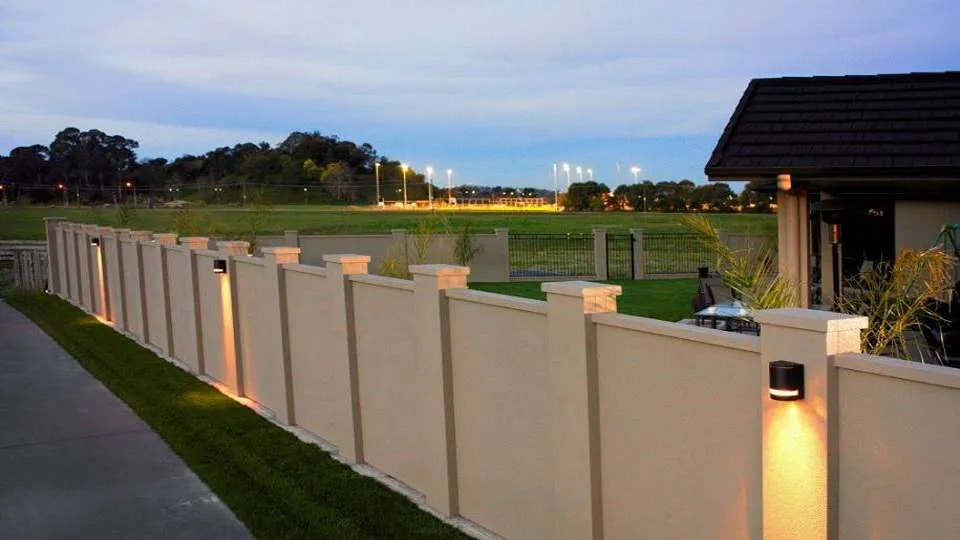
Image Source: happho.com
Simple compound wall design pattern give houses the chance to veil themselves from trespassers, dust, and noise pollution. Mostly constructed using stones, red clay bricks or fly ash bricks, steel, and cement mortar, these wall designs have evolved significantly. Generally, the construction of such walls starts from 2 feet below ground level to ensure that they have a solid foundation.
Compound wall design #2 – Ornamental wall
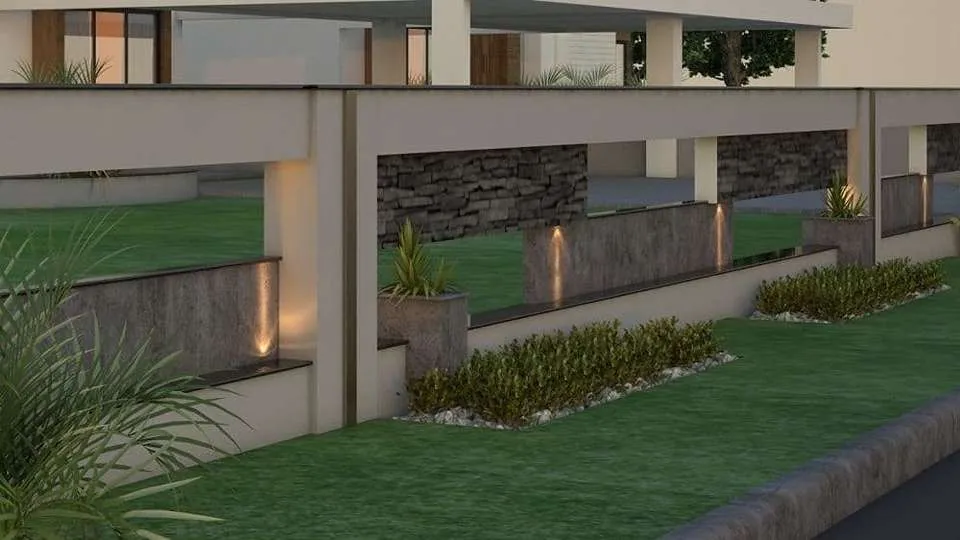
Image Source: bilarasa.com
In modern times, new compound wall designs boasting trendy patterns and cut-outs are being used. The ornamental wall is a combination of a masonry wall and mild steel/stainless steel grills. In this type of wall, a masonry wall of 3-5 feet is constructed. Since these are customized as per need, grills or stainless-steel grills are also added for design and security purposes. These ornamental wall designs also feature latticework and animal print sceneries made of moulding metal.
| Also see: Colour combo for walls: 19+ top-notch ideas for stylish makeovers |
Boundary design #3 – Modern stone cladding
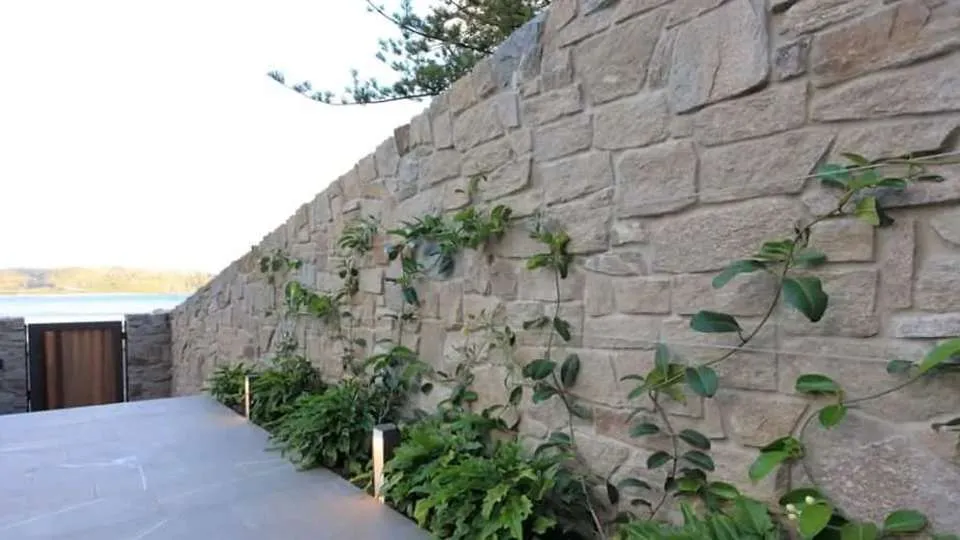
Image Source: pinterest.com
Modern cladding compound wall designs use cladding materials such as vitreous tiles and marble panels. These are fixed over simple masonry walls to give them an aesthetic appeal. These walls are suitable for high-end properties and are used mostly in metro cities in India. Modern compound wall design photos often showcase innovative features like lighting or greenery that can elevate the design of your space.
| Also see: 16+ Wall decoration DIY ideas for an instant makeover (+5 mins DIY) |
Front wall idea #4 – Precast wall
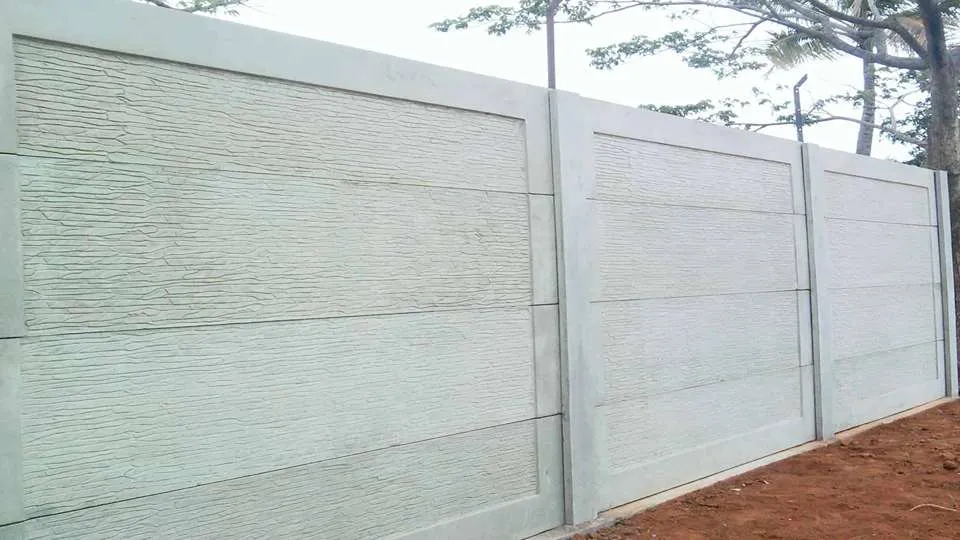
Image Source: exportersindia.com
Precast walls are usually a mix of steel and concrete. These are ideal compound wall types for residences. Made in factories across the country, these are easy to install. Also, since these are made in factories the cost is relatively lower due to economies of scale.
Fence design #5 – Security grills
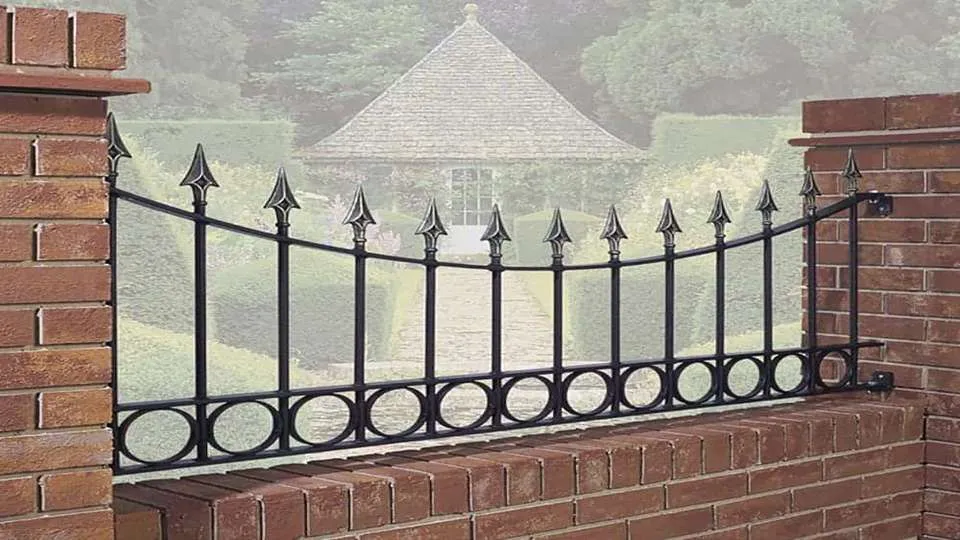
Image Source: gardensite.com
Security is always a priority, therefore the construction of security compound walls has gained popularity. A well-planned building compound wall design not only provides privacy but also adds a unique architectural element to the property’s landscape. These wall designs with grills are used mostly in apartments and residential complexes. Additionally, this type of wall design is common in gated communities.
| Also see: 63+ Ideas for wall decoration: Upgrade from dull to dazzling walls |
Materials used for compound wall construction
Modern compound wall designs for buildings incorporate materials like metal, cement, PVC, stone, wood, to create a contemporary, sophisticated look. Homeowners can use compound wall design photos as a guide to select materials, textures, and colours that complement their property’s exterior. Many homeowners prefer eco-friendly options in their compound wall design for home, utilizing sustainable materials and designs that promote greenery. For DIY enthusiasts, reviewing compound wall design photos can spark creative ideas for personalizing your home’s boundary while staying within budget.
Compound wall design #6 – Bricks
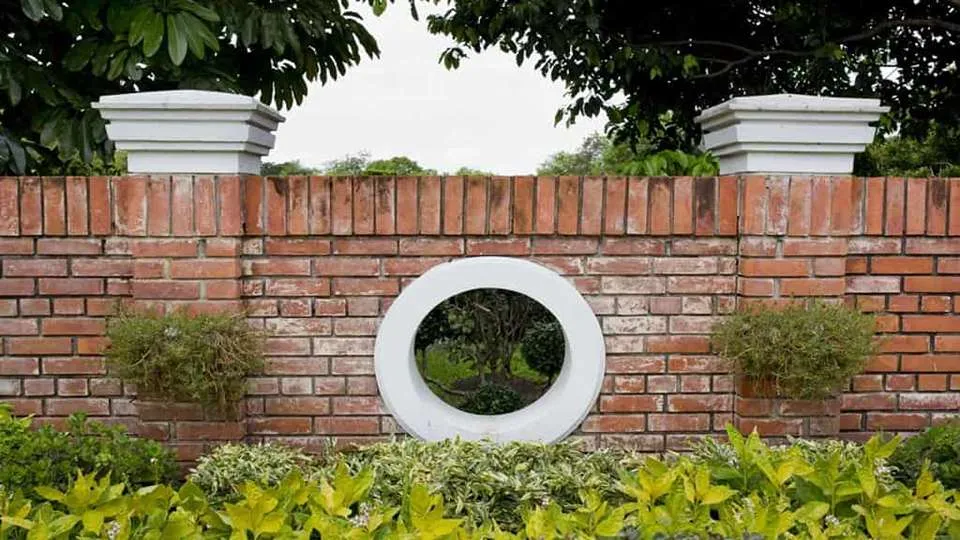
Image Source: zameen.com
One of the most preferred materials for compound wall designs, bricks are laid in many different angles, patterns, and styles to create different designs. Exposed brick walls are sealed with a weather sealant to preserve them for years. Also, these add a rustic look and feel to the wall design.
Fence wall idea #7 – Stone tiles
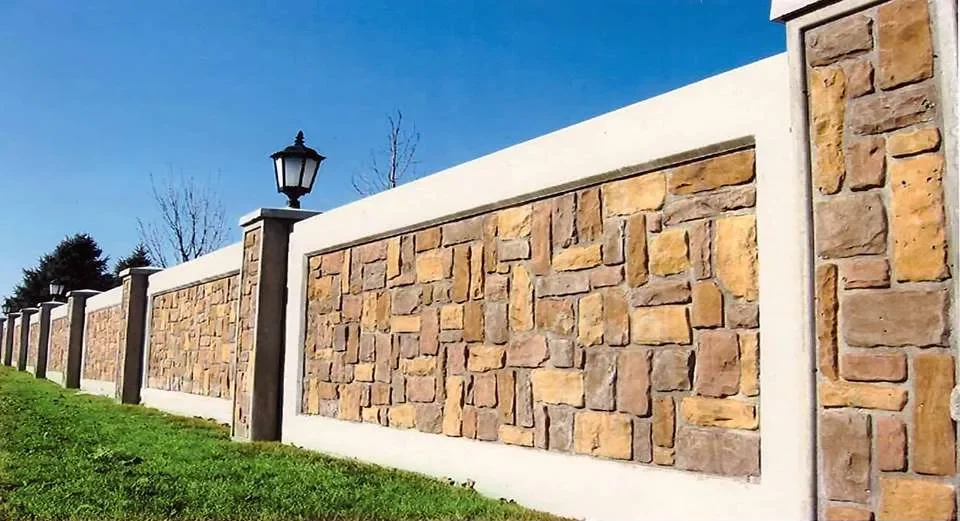
Image Source: engineeringdiscoveries.com
The structural frame of an existing wall is clad with thin stone slabs and ledges with the help of cement plaster and other binding agents. Since stone is a very tactile material, it comes in different colours and textures.
Compound fence design #8 – PVC boards
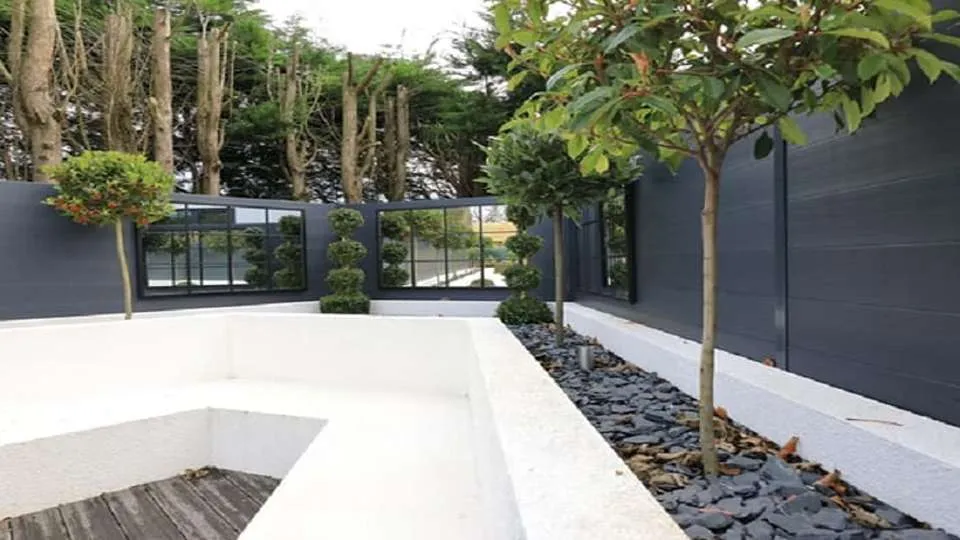
Image Source: birkendalesales.com
Installing ready-made boards made of PVC is an easy alternative to creating patterns and weaves on the compound wall. These boards are to be fixed to the base wall with screws. The boards are styled in different designs for an innovative look.
Compound fence designs #9 – Cement plaster
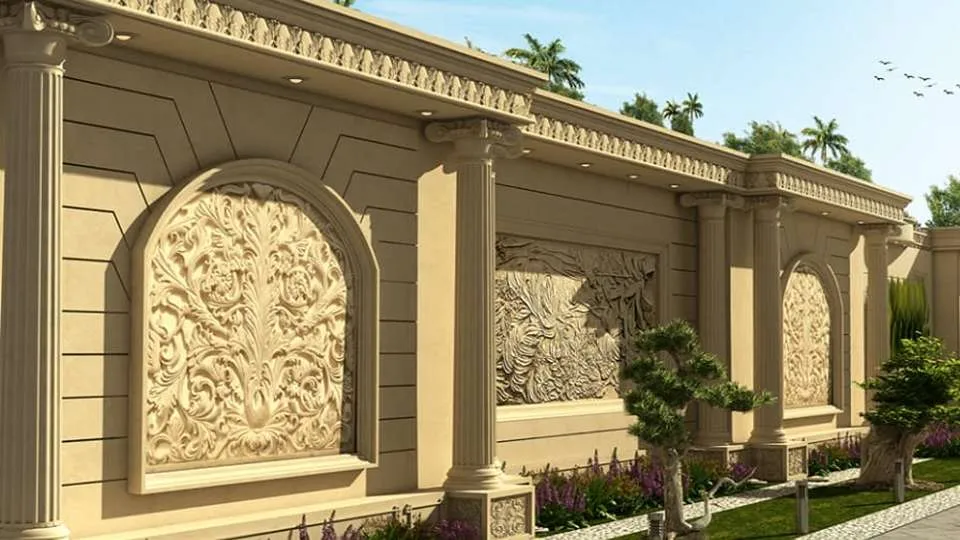
Image Source: tricityproperties.com
Wet cement plaster can be carved into motifs, patterns, figurines, and murals. If you wish to create designs on-site, buy from the readymade cement boards available in the market. Also, these create a modern front wall design for your house.
Boundary design #10 – Wood planks
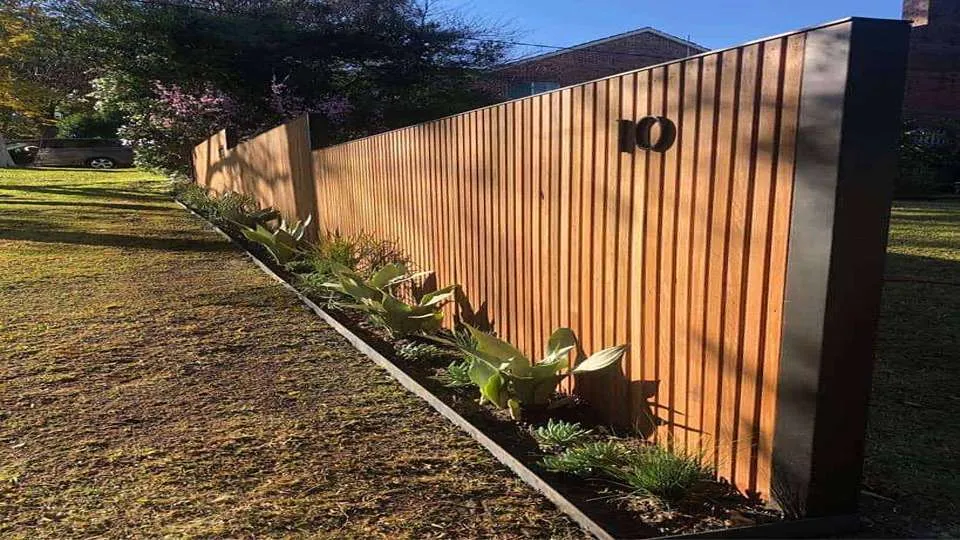
Image Source: pinterest.com
In urban homes, wood is being used to create new wall designs. Seasoned wood is fixed to the simple masonry compound wall as a cladding. Additionally, treated wood planks are available in different shades and grains for the wall facades. With the many design options, wood panels are a great way to spruce up your home. A decorative compound wall design for home can serve as a canvas for artistic elements, making a bold statement in your neighborhood.
Boundary design #11 – Metal
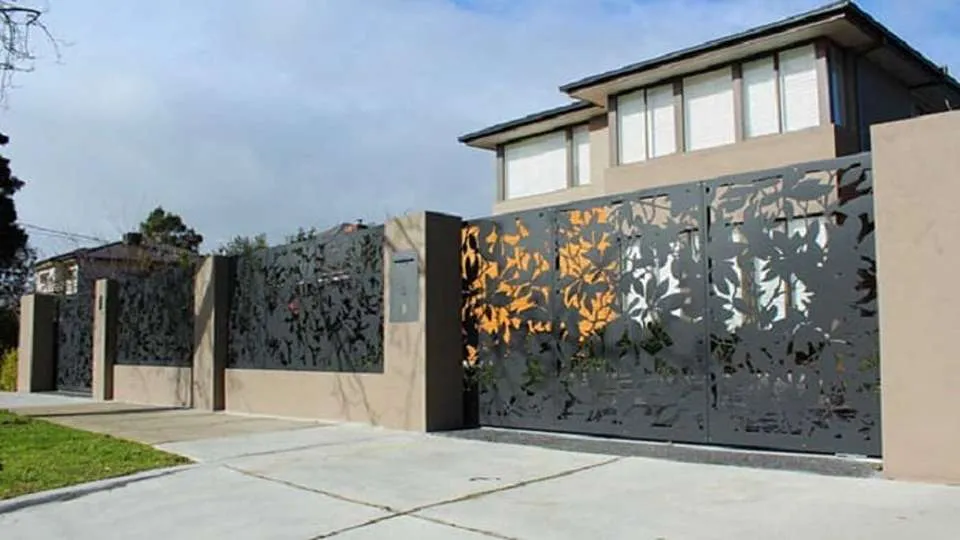
Image Source: thenhome.com
Metal sheets in grill and jaali patterns are used to create innovative vignettes for the compound wall. These ready-made metal jaalis are easy to install and are available in different designs
Home compound wall designs
Compound wall design #12 – Japanese garden wall
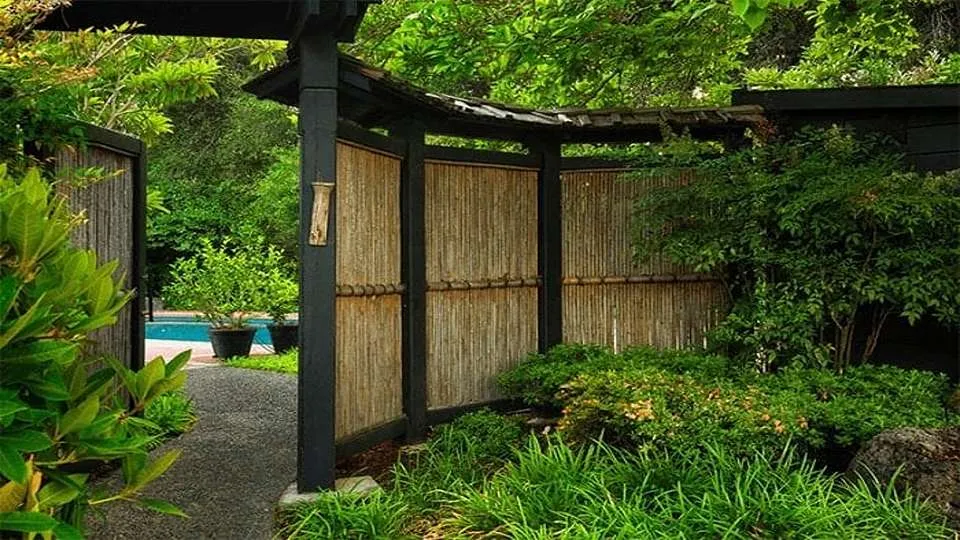
Image Source: kikuchandKankeldesigngroup.com
Typically made from wood and stone, the Japanese garden wall has intricate and ornate designs.
Compound wall design #13 – Peek-a-boo wall
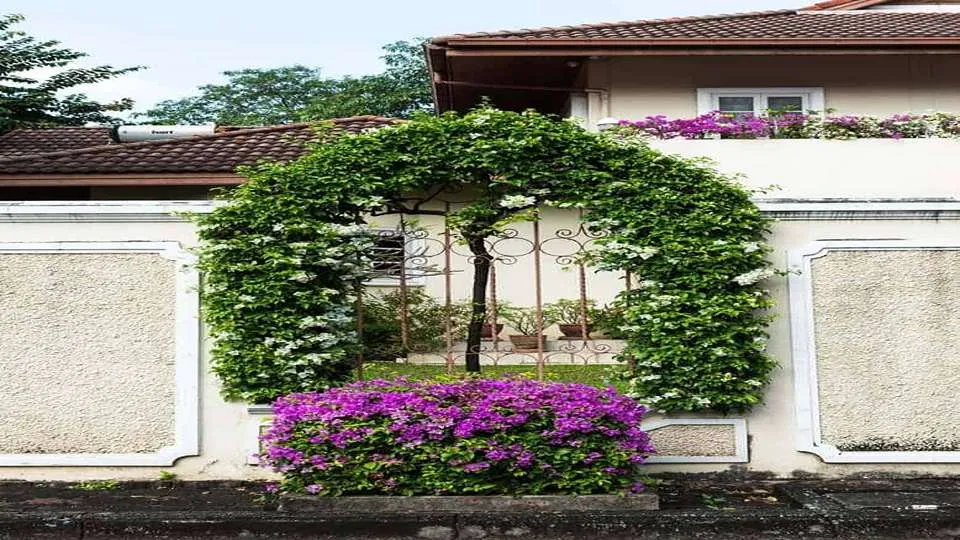
Image Source: shutterstock.com
A peek-a-boo wall is made of panels with openings between them. These openings are round or square and of different sizes. The main purpose of this wall is to provide privacy while allowing natural light to pass.
Boundary design #14 – Stucco concrete wall
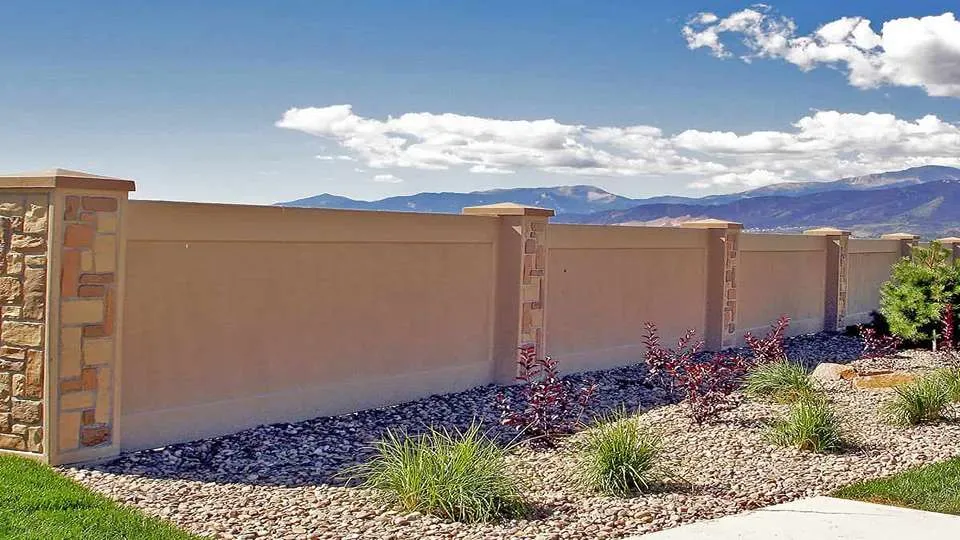
Image Source: aftecs.com
Stucco is made of a combination of cement, sand, and water so that it can be applied in a way that creates a thick coat on the surface of the wall.
Boundary design #15 – Gabion wall
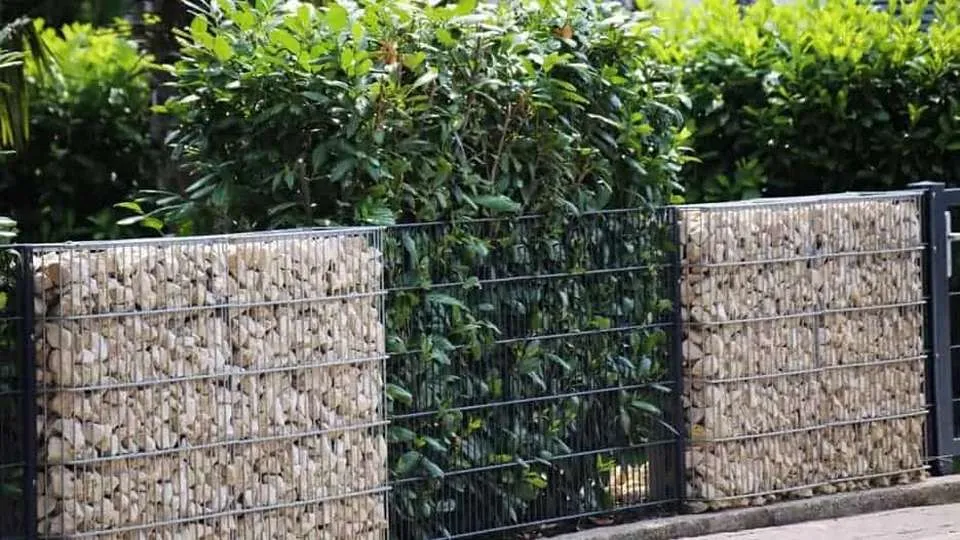
Image Source: bitsathyblog.com
Gabion walls made of galvanised steel, aluminium, and PVC use modular boxes or cages. Rocks and other materials fill the cages. These are then welded together to create durable walls.
Boundary design #16 – Green wall
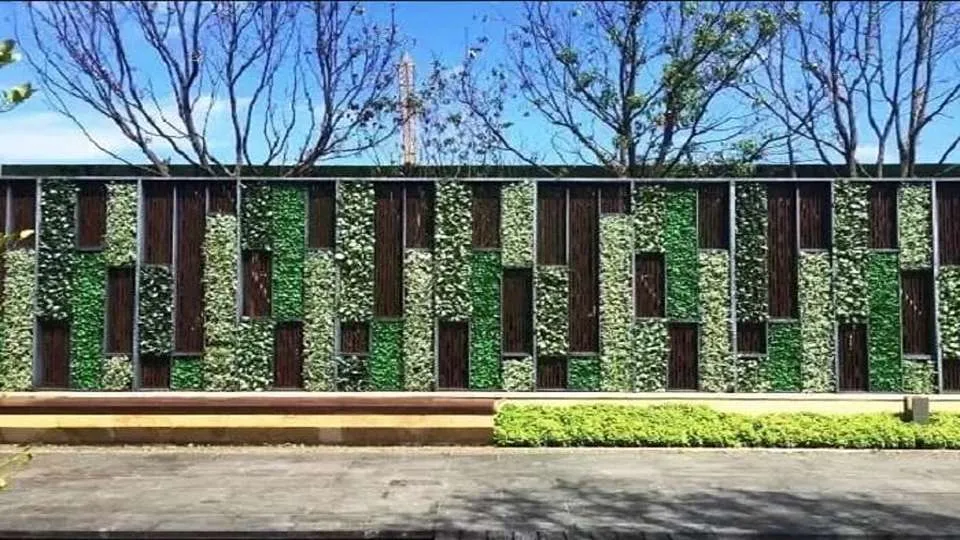
Image Source: pinterest.com
A green wall is a vertical garden wall made out of plants. These walls add a natural look and also help in purifying the air.
Compound wall design #17 – Metal fence wall
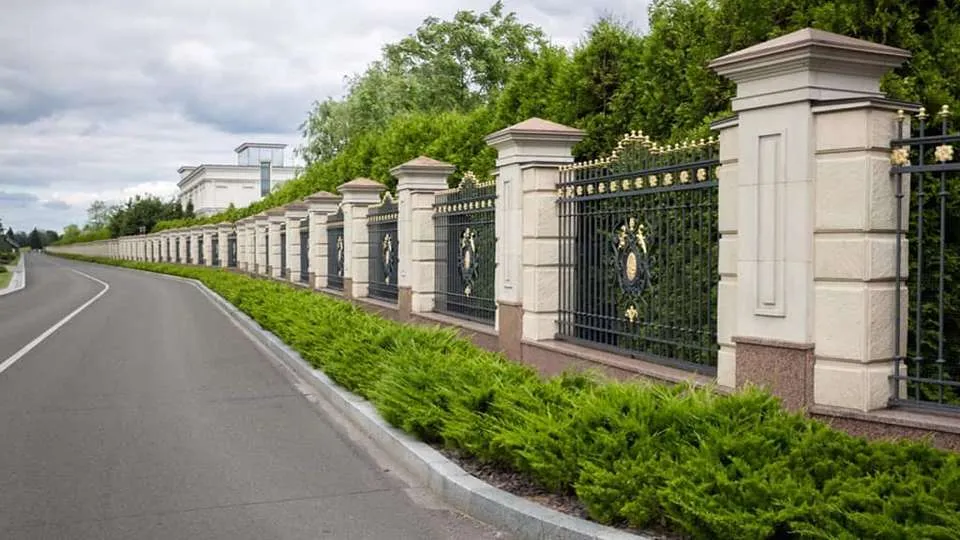
Image Source: zameen.com
One of the easiest ways to give your home a modern look is by adding a metal fence wall near the main gate. Made of materials like mild steel or stainless steel these offer security and also blend well with most exterior designs.
Compound wall design #18 – Exposed brick wall
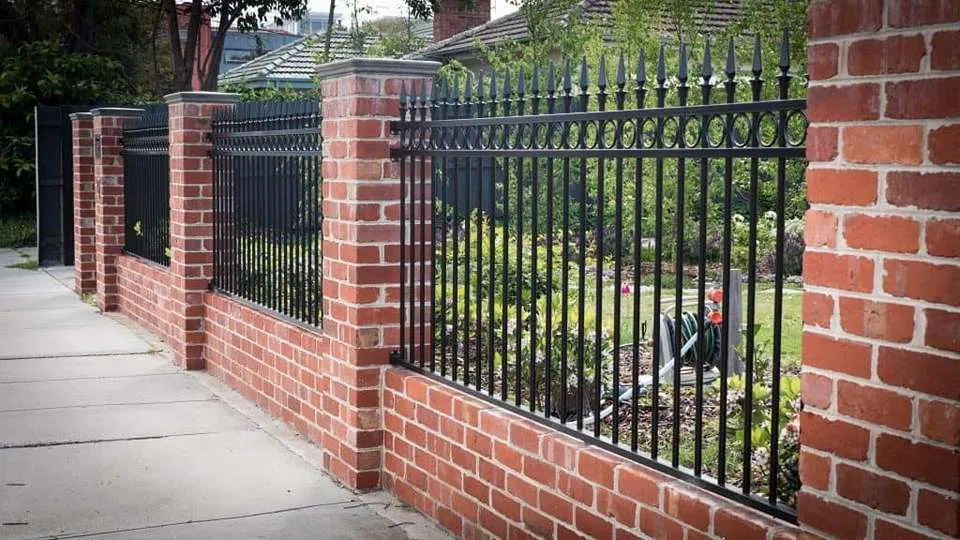
Image Source: dwyerbrickfences.com
Exposed brick walls bring an old-world charm to them. These walls are suitable for residences and offer a new look every time you repaint them.
Compound wall design #19 – Stone clad wall
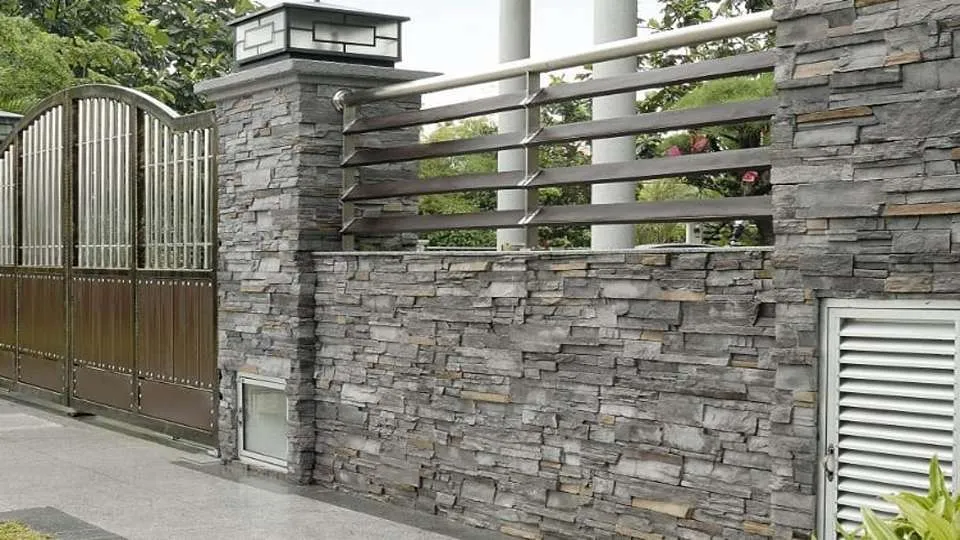
Image Source: hireandbuild.com
Stone cladding in the form of granite and limestone is used to make the wall aesthetically appealing.
Compound wall designs #20 – Ornate jaali wall
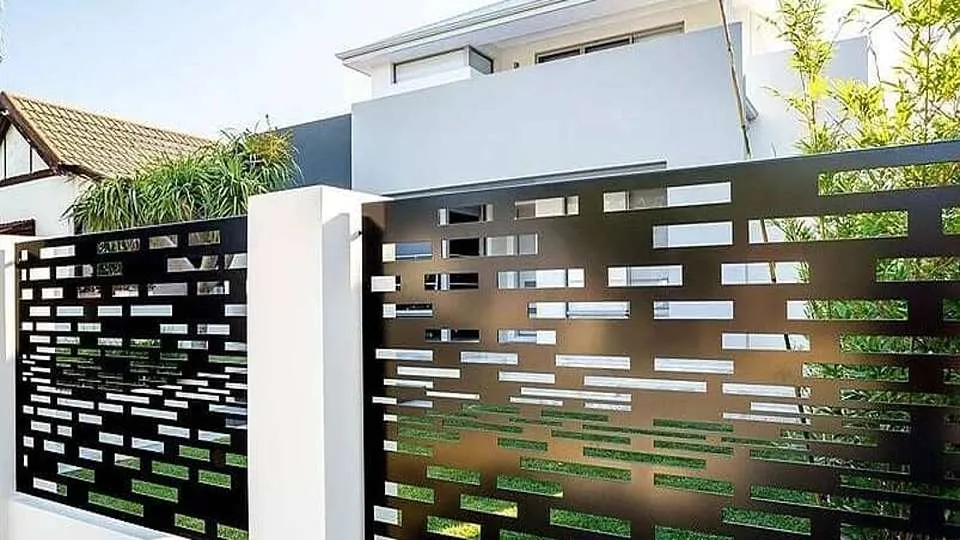
Image Source: tricityproperty.com
3D metal cuttings in ornate jaali design have countless design options. These are fixed to the base wall with the help of screws.
Compound wall design #21 – Heritage-inspired wall
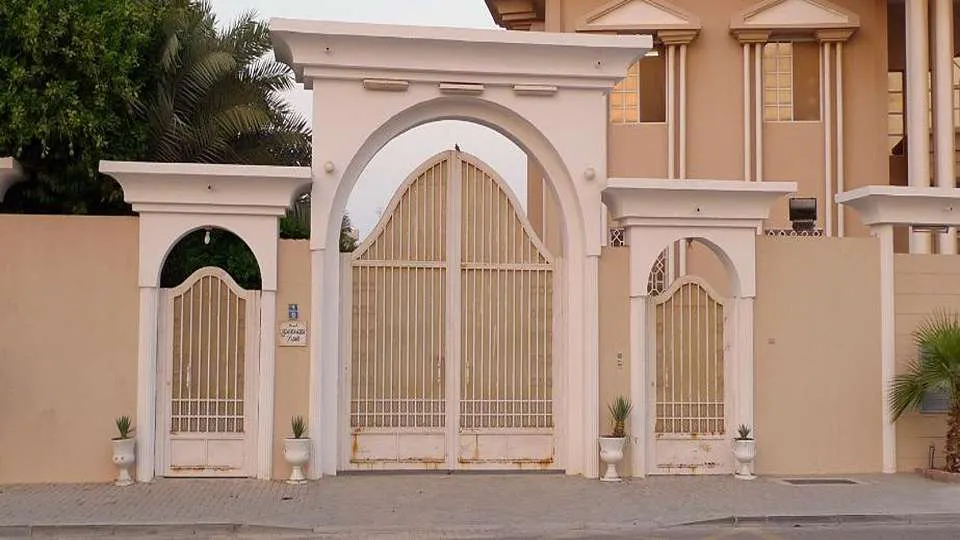
Image Source: shared4info.com
These wall designs take inspiration from old Indian architecture. They have intricate detailing and patterns.
Compound wall design #22 – Sustainable fence wall
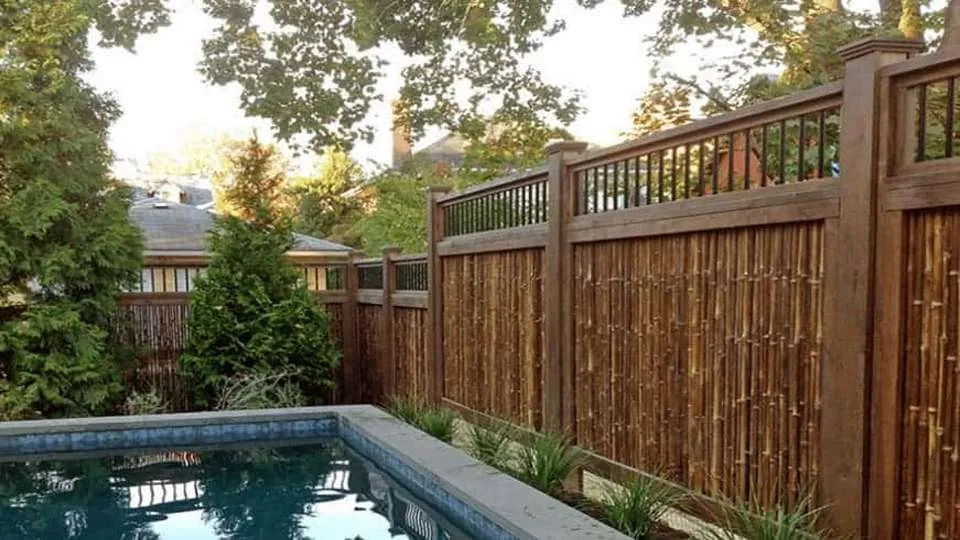
Image Source: elementalgreen.com
Sustainable fence walls made of recycled materials like bamboo, reclaimed wood, and old scraps have gained popularity.
Home compound wall design tips
When selecting a compound wall design for home, consider the following tips.
Vastu Shastra
Many people in India prefer to follow Vastu Shastra guidelines for their homes. According to Vastu, a compound wall should be higher on the south and the west sides as compared to the north and the east side to block harsh sun rays coming from the southwest portion and allow only warm useful rays from the northeast sides. Choosing the right compound wall design for home can transform the exterior, blending style with security for a cohesive look.
Obstructions
While deciding on the compound wall, keep in mind that there should be no obstructions such as trees, drains, poles, or other walls in front of the compound wall. To solve this problem, it is suggested that these obstructions are at a distance twice the height of the house which will nullify the negative effects.
Colours and textures
Accessorize your wall with marble or wood panels in different colours and textures. Use installations in metal or terracotta to make your wall design stand out. Make the compound wall an accent wall that shows your personality. Innovative building compound wall designs combine durability with visual appeal, featuring materials like brick, stone, or metal for a striking boundary. For a unique and personalized look, reviewing compound wall design photos can give you creative ideas on using textures and finishes.
3D patterns
Create a decorative niche on the wall. The circular or rectangular niches are enhanced with cement plaster boards and 3D patterns.
Accent lighting
Add accent lighting to your wall designs to add warmth and enhance the overall look. The soft lighting puts focus on the design element and adds drama.
3-tone colour palette
It is advisable to use a three-tone colour palette for these walls if you want colourful walls, as it gives a balanced look to the overall design of the property. The three-tone rule suggests a 60-30-10 ratio which implies that you must use 60% of the primary colour, 30% of the secondary colour, and 10% of the accent colour.
Choosing the best and simple compound wall design pattern for your home is an important task as it provides privacy and safety. The style of these walls should reflect the architectural design of your home. Architects often recommend looking through compound wall design photos to visualize how different styles can transform the overall exterior. There are plenty of ornamental and modern designs to choose from. Compound walls differ based on their appearance like simple masonry walls and precast walls. A range of materials like brick, stone, and wood are used to make innovative wall designs. Most people want to create statement walls that are unique like a vertical garden wall or a gabion wall, that will add to the beauty of their house. Whether you’re renovating or building new, compound wall design photos provide a valuable reference to visualize your desired look.
Our curated list of unique tips will help you select the most suitable wall design. You can find endless inspiration by browsing pictures of compound wall design, showcasing a variety of textures and finishes to suit any property. Additionally, we have also answered a few frequently asked questions about the ideal size and thickness of a compound wall. Now that you have all the information regarding compound wall design, you are ready to enhance the aesthetic appeal of your home.
FAQs
What is the ideal height of a front fence wall?
Generally, the height of compound walls is designed by local municipalities to be between four and six feet. They will not block the natural lights of properties within the local vicinity so that they can easily be well-lit and aired. Also, they are very crucial as they preserve attractiveness while conveniently fitting into society.
What is the ideal thickness of a boundary wall?
The ideal thickness of the compound wall should be between 8 to 9 inches, that is about 200 to 230 mm. Such a thickness provides the necessary strength and durability for environmental stresses, safety, and security. The well-constructed wall of this thickness provides not only structural integrity for the property but also contributes to general aesthetic appeal.
How much does it cost to construct a compound wall?
The cost to construct a compound wall depends on materials, height, and location. On average, basic brick or concrete walls range from ₹800 to ₹1,200 per square foot in India. Premium materials like stone or metal designs can increase costs, reaching ₹1,500 to ₹2,500 per square foot. Factors like labor, wall finish, and gate installations also impact the total price.
Do we need permission to construct a compound wall?
It is not necessary to take permission to construct a compound wall if it is a part of the approved plan of the building. Compound wall designs for buildings can range from simple brickwork to intricate patterns using decorative tiles and textures, enhancing the overall exterior look. One should, however, always check up with the local civic authorities before undertaking any such construction.
Why do we need columns for a compound wall?
Columns are essential in a compound wall as they provide structural support, which ensures stability and durability. They help bear the load of the wall, especially for longer spans, and resist forces like wind pressure and soil movement. Columns also add design flexibility, making it possible to allow gates, decorative features, and height variations along the wall.
*The featured image used in this article is from pinterest.com
25 simple Indian house colour combination for outside walls
Choosing exterior colours for your house can be one of the biggest design-related decisions you ever make, as they play a maj









